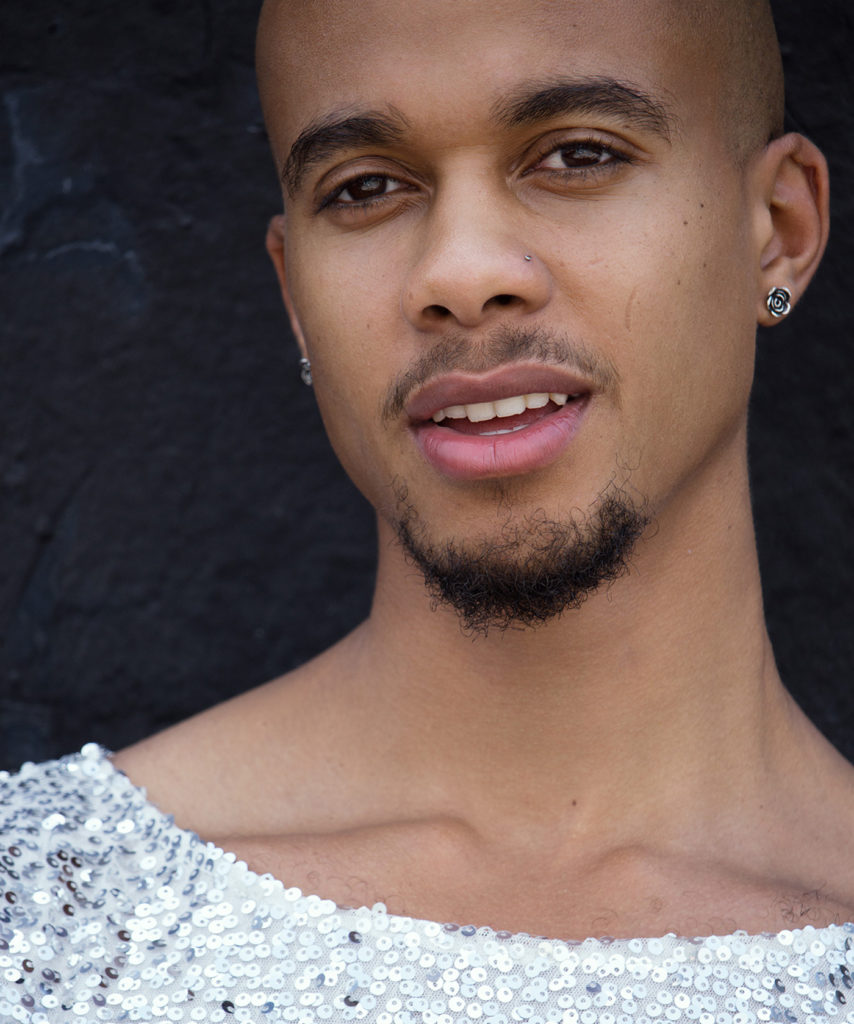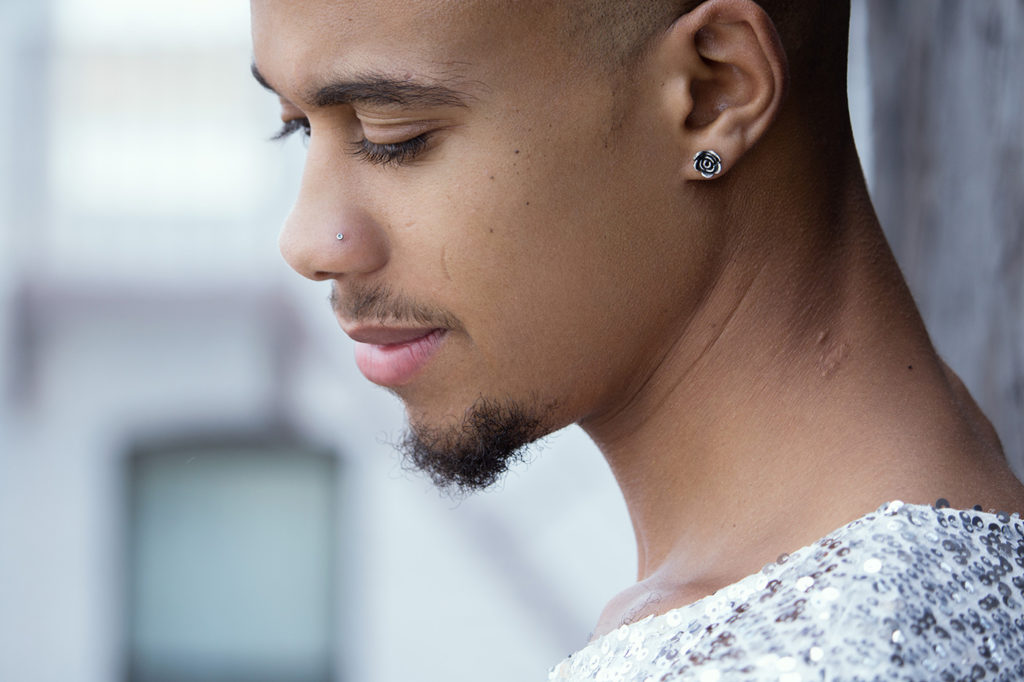For some, the conversation around masculinity is a long, tired one. It’s debated, bemoaned, and analyzed a million times over. Yet so few talk about masculinity and blackness.
Why? Because to do so is to force ourselves, and everyone, to admit a painful truth: “We live in a society that benefits people who can perform archetypes of masculinity and whiteness, which no black person can really do.”
As Hari fearlessly takes us on a journey down memory lane, deconstructing masculinity, we learn the comfortable truth about what is and what isn’t. But we also learn what can be.
And that if we’re committed to having serious conversations around masculinity, for people of color especially, it requires a conversation about blackness, which demands we ask what we can all do to dismantle the systemic oppression we live in.
Growing up, the only criteria that I had for manhood was anything that wasn’t what a woman would do, which was kind of a weird, negative identity. I would hear, “A man doesn’t do….” I never heard the clichés about what he did, like taking care of his families. I never heard any of those things. I just knew that there were things a man wasn’t supposed to do that I did.
The moment I first wondered, “What is a man?” was the first time I got in trouble for my interactions with another boy. I was still taking showers with him (my friend) so I wasn’t very old–5 or 6. I danced on him or something in a way that prompted him to tell his mom. I didn’t get hit often growing up, but that was one of the times I was hit, and hard.
I remember thinking that the beating was necessary for making me a man. And that was the beginning of my idea of manhood as stifling pain or forcing yourself to undergo pain, because a man can’t ever let it out. He can’t ask for help. It was just a lot of hurt. I felt a betrayal with my father that I don’t think I’ve ever really fixed, even though we have a decent relationship now.
Growing up, the only criteria that I had for manhood was anything that wasn’t what a woman would do. I just knew that there were things a man wasn’t supposed to do that I did.
Growing up, I learned that a man was also not allowed to be vulnerable. He could get angry, but he couldn’t get emotional otherwise. That didn’t make any sense to me because not addressing it usually compounded the anger. He couldn’t expect to be assisted and supported and helped the way a woman was, emotionally. He would be helped in whatever other way he desired, in many ways that women are refused help. But he was expected to be emotionally closed off.
At the same time, I’d always been an emotional kid, even though I don’t show it now the same way other people do. I’m very empathetic and I feel strongly. That was discouraged. I remember my father actually saying, “We need to teach these boys not to cry so much.”
And when it came to dress, I was more comfortable in fitted clothes, when that wasn’t what boys were allowed to wear at all. I wanted to hang around my mother and sisters, but that was discouraged. So I was forced into things I didn’t want to wear, into a stoicism that didn’t feel natural, and away from the people who made me feel most self-aware.
It wasn’t difficult to fall into the role that I was asked to fall into–though I played sports, played basketball, and I was homecoming king–it’s just that it never felt like me. That’s it’s own kind of violence. A lot of queer people see a standard of themselves that they can’t meet and I also felt I was pressured out of being myself. Now is the first stage of my life where I’ve been able to re-explore what my natural relationship with gender was growing up.
I remember thinking that the beating was necessary for making me a man.
As a non-binary person, it’s not just that I don’t feel uncomfortable with things like facial hair or anything like that. I identified as gay for a long time, but that isn’t my understanding of my sexuality anymore. My relationship with gender and sexuality is about embracing the fact that my relationship with sexuality and intimacy don’t have to look the same in order for it to be a real relationship. For example, my attraction to people who aren’t men is different from my attraction to men.

Now, I’ve had to realize that I am attracted to this person, whereas I used to say I can’t be attracted to this person because I’m gay. My gender presentation is about how I present myself. I will wear what I want to wear, even if it’s not what a lot of men or women would wear. But it’s not about how others interpret my presentation. It’s about the types of things I allow myself to feel and how I allow them to be valid. So much of gendering is about limiting a person’s experience. The way I identify is about allowing my whole experience and self to be valid.
So when I ask people what it means to be a man and they answer with a lot of responses that aren’t qualities only men have, it’s hard for me to pin that down to manhood. To me, the most salient ideas of what a man is are still what he shouldn’t do. Those are the first things that come to mind.
That’s how I learned it through my father. And that’s how society, as a patriarchal system, shapes itself. Certain people have to have power and some don’t, and it’s based on negative identities of gender—what you can’t do. That’s been reinforced for me in school and pretty much with every adult figure, man or woman.
For example, how I walked and my mannerisms were policed at an early age, but especially at eight or nine. The other boys and girls constantly said, “Boys don’t do this…” I know that girls hear that, too, but it’s a slightly different thing. You don’t necessarily make an identity out of it. Girls are policed to be feminine to be more attractive to men, whereas men are policed out of femininity to become men.
So much of gendering is about limiting a person’s experience. The way I identify is about allowing my whole experience and self to be valid.
But that’s the way patriarchy manifests; it chops people up into little groups where they can easily be sorted and placed into their position, and ultimately supports this masculine, patriarchal society, which benefits people who can perform archetypes of masculinity and whiteness, which no black person can really do.
None of this is ultimately going to work for black folks. This isn’t a society that was built for us. We’ve been going through systems of oppression that evolve in different ways, but that keep us–across the board–from having the same experiences of white folks. A good example is Bayna-Lehkiem El-Amin. This black guy hit a white guy with a chair over the head. The white guy was gay, so he said it was a hate crime. So people went with that story.
Later, it was revealed the black guy was gay and footage showed that the white guy hit him first. Regardless of that fact, the message had already been pushed that this was a hate crime, so he got nine years for simply defending himself. Another example of how when blackness and whiteness collide, whiteness always wins.
Blackness is not a cisgender, heterosexual male ideal. It’s full of enough room for all of us to live in. At the end of the day, no matter where we are in our gendered experience, we have to realize that none of this shit is working for us and we shouldn’t try to hold on to the crumbs we have by virtue of our middle class status or whatever it is, only then can we get to a point where we can dismantle this systemic oppression.
This masculine, patriarchal society, which benefits people who can perform archetypes of masculinity and whiteness, which no black person can really do.
